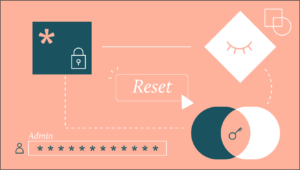Online learning has fundamentally changed the educational landscape, particularly for career schools that prioritize job development and vocational training. Educational institutions that permit remote learning are not only keeping up with the times but also providing their students with significant advantages in a world where change is the only constant. The benefits of online learning for career-focused individuals extend beyond convenience and include favorable effects on cost, reach, and flexibility.
Increased Reach: Democratizing Education Across Geographies
The geographic boundaries that formerly restricted a college’s reach have been eliminated by the virtual classroom. It used to be necessary for students to move or travel great distances to enroll in high-quality training and educational programs. This relationship has altered as a result of online learning, giving professional institutions access to a worldwide student base. Now, students may access the same classes, resources, and knowledgeable teachers online, regardless of where they live—in a booming city or a distant rural location.
In addition to growing the market for professional colleges, this broader reach has promoted a more varied learning environment. Pupils with diverse life experiences and cultural origins add an assortment of viewpoints to the classroom that enhance education and get all pupils ready for a globalized workforce.
Flexibility: Catering to the Modern Learner
There isn’t a more flexible option than online learning, allowing students to balance their studies with their personal and professional commitments. Non-traditional students who may be taking up full-time employment, taking care of their families, or even changing careers are frequently drawn to career institutions. They may check in and learn at times that work for them, thanks to online classes.

The concept of flexibility includes pace. Asynchronous learning, which is available in many online programs, allows students to attentively study lectures and do projects at their own pace without having to attend in-person sessions. The opportunity to continue working and living normally while attending school is a major selling feature for vocational colleges.
Additionally, because online learning is flexible, students may design their learning pathways. They may further match their education with job goals by selecting from a wide scope of programs and courses that might not be offered in their area.
Affordability: Reducing Costs and Increasing Value
For students, online learning may be a more cost-effective choice. Online programs can give cheaper tuition pricing as they do not require physical infrastructure or the accompanying expenditures that come with it, such as lodging and transportation, for both the student and the institution. Furthermore, digital resources frequently take the place of more costly textbooks, and the flexibility to work while studying makes it easier for students to afford their education.
The financial advantages for professional colleges also mean a chance to increase spending on top-notch faculty, cutting-edge equipment, and student services. The money saved may be used to improve the online learning environment, guaranteeing that the affordability of the instruction does not detract from its worth.
In conclusion, online learning presents a trifecta of benefits for career colleges: it breaks down geographical barriers, increases educational accessibility, and offers a learning model that caters to the modern, busy adult. Orange Info Media offers cutting-edge technology to ensure the best educational experiences for you and your growth. By leveraging technology to its fullest potential, online learning is not just an alternative form of education; it’s becoming a key driver of lifelong learning and career success.











